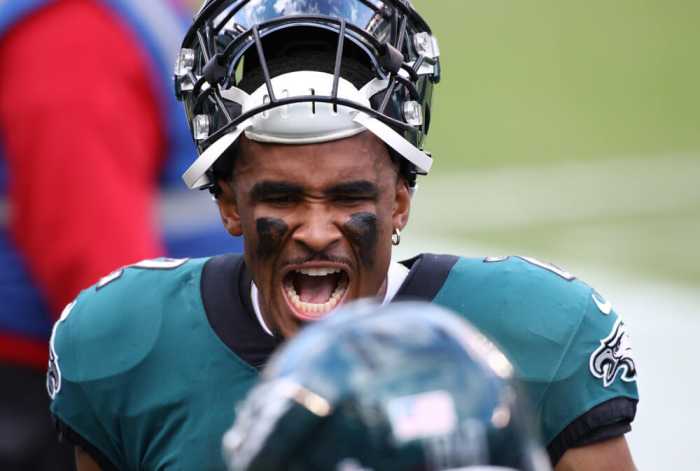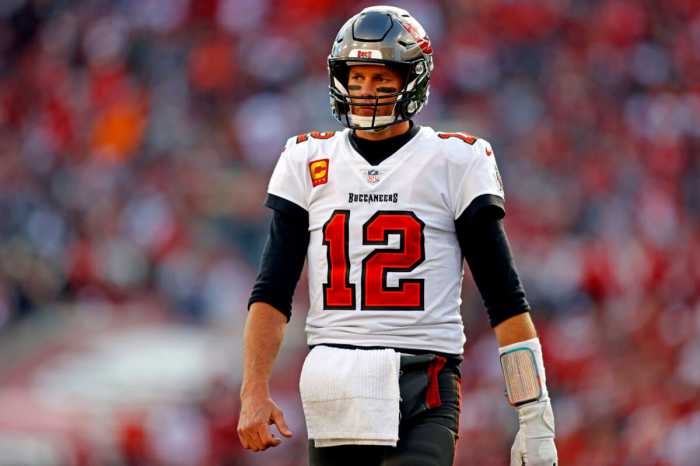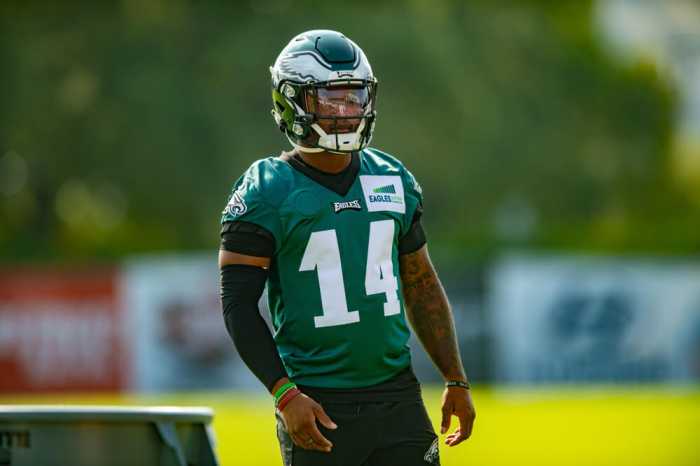If the Philadelphia Eagles expect to materialize preseason hype and rejoin the conversation as a Super Bowl contender, they will need to demonstrate a much better ability to enact the concept of complementary football than they did during their unceremonious exit from “Super Wild Card Weekend” against the Tampa Bay Buccaneers in January.
NFL coaches like to cite the timeless cliché of “complementary football” as a blanket term that puts emphasis on the importance of each unit and every individual on a team. What is complementary football, and why is it necessary in the modern NFL?
Complementary Football Cliché
Six-time Super Bowl champion Bill Belichick has pounded the idea of complementary football to death to account for the need for the offense, defense, and special teams to work in unison.
Long-time New England Patriots linebacker Tedy Bruschi believes that it starts with the importance of field position. The former Pro Bowler described a sequence during a matchup between the New England Patriots and the New York Jets as a perfect example.
It started when the Patriots flipped field position with execution by the punt team to pin the Jets deep inside their own territory. The New England defense followed by forcing a three-and-out, and the Jets failed to match the execution on special teams with just a 31-yard punt. Tom Brady capitalized on the shorter field by orchestrating a touchdown drive that could’ve been credited to the defense and the special teams as much as the offense.
Turnovers frequently flip field position more drastically than effective special teams units. Former New England defensive back J.C. Jackson revisited the concept of complementary football after the Patriots forced four turnovers in a Week 2 blowout victory last season.
“Like coach (Belichick) says, we get turnovers, we become the offense,” Jackson said.
NFL defensive and special teams units play a pivotal role in setting up their offenses to score points. It’s why the most prolific offenses in terms of overall yardage don’t always put up as many points as offenses who get help from other units and more favorable circumstances.
Belichick has unsurprisingly mastered the concept of complementary football and created a blueprint that other NFL organizations should follow.
Eagles Need to Play Complementary Football
Jalen Hurts made his first NFL start in Week 14 of the 2020 season against the New Orleans Saints. The Eagles ran for 246 yards and forced two key turnovers in a 24-21 upset victory. While the 2020 season was not salvageable with Hurts under center, the Eagles unknowingly set somewhat of a blueprint for their success down the stretch in 2021.
Doug Pederson pointed to the cliché during an interview with Dave Spadaro after what turned out to be one of his final games as head coach.
“When we say ‘complementary football,’ I think the game Sunday (the win over the Saints) epitomizes that. We had two takeaways on defense. We had five sacks on defense. The offense was able to capitalize on those takeaways and score. We had drives to score, special teams, coverage units, things like that. That’s complementary football.”
-Doug Pederson
The Eagles established an identity as a rushing offense and clinched a Wild Card berth in Week 17 with a streak of seven victories in eight games. One key component to their success was controlling the time of possession in the sense of complementary football. They finished 7-1 in games when they won the time of possession share and 2-7 when they lost it.
The offense couldn’t execute in the playoff loss to the Buccaneers. They ruined any chance to keep the game close against Brady and his cast of star offensive firepower. While the Philadelphia defense wasn’t nearly as talented as the opposing offense, they forced the Buccaneers to go three-and-out on three possessions during the first half and set up Hurts and the Eagles offense to get things going.
The offense ran three plays for five yards on their first possession, and Arryn Siposs did the defense another disservice with a 27-yard punt. When the offense got the ball back, they ran four plays for 15 yards and punted a second time. The second punt from Siposs went for only 36 yards. The Eagles failed to control the time of possession and continue the formula that helped them during the second half of the season. They asked too much of their defense and went to the locker room in a 17-0 hole.
When the defense forced yet another three-and-out on Tampa Bay’s first possession of the second half, the special teams shot the Eagles in the foot when former first-round pick Jalen Reagor muffed a punt return and handed the Bucs the ball in Eagles territory. The lack of complementary football left the defense hanging out to dry, and allowing 31 points in a losing effort does not come close to telling the unit’s whole story for the day.
Eagles in 2022
Defensive coordinator Jonathan Gannon’s passive defensive scheme received heavy criticism in 2021, especially through the first nine games of the regular season. The Eagles faced five of the seven top quarterbacks in the NFL measured by the EPA per play metric from Stat Muse. They went 0-5 against the top signal-callers on their way to a 3-6 start.
The defensive strategy, as frustratingly unimposing as it seemed, did account for the landscape of the modern NFL. Martin Frank summarized their goals appropriately.
“Gannon’s strategy of playing two safeties deep is designed to prevent big plays from taking place. In Gannon’s view, the offense has a better chance of making a mistake on a 15-play drive going the length of the field, than on a 50-yard deep ball over the defensive backs.”
The expectation for a defense that can take advantage of mistakes aligns with the premise of complementary football. The Eagles hope to build a team centered around a potent offense that is aided by a complementary defense and strong units on special teams.
With upgraded personnel on both sides of the ball and the hope for Hurts to take another step forward, the Eagles expect to create a more sustainable winning formula in 2022.
Photo by Rich Graessle/Icon Sportswire





























